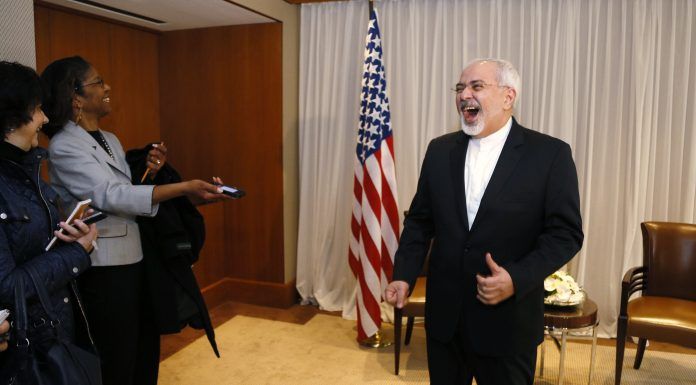WASHINGTON, July 14 (Reuters) – The United States has granted a visa to Iranian Foreign Minister Mohammad Javad Zarif to attend a U.N. meeting in New York this week, two sources familiar with the matter said on Sunday, saying Secretary of State Mike Pompeo had approved the decision.
Had Pompeo not approved giving a visa to Zarif, Iran‘s top diplomat and nuclear negotiator, it could have been a signal that the United States was trying to further isolate the Islamic Republic and perhaps closing the door to diplomacy.
U.S.-Iranian tensions have worsened since U.S. President Donald Trump decided last year to abandon the 2015 nuclear deal under which Iran agreed to curtail its atomic program in return for relief from economic sanctions crippling its economy.
They have taken several turns for the worse in the last two and a half months after Trump acted to try to eliminate Iran‘s oil exports entirely because of U.S. concerns about its nuclear and missile programs and regional activities.
Since that decision, there have been two sets of attacks on tankers in the Gulf that Washington blamed on Tehran despite its denials, and Iran has downed a U.S. drone that prompted plans for a U.S. retaliatory air strike that was abruptly called off.
On June 24, U.S. Treasury Secretary Steven Mnuchin had said Zarif would be hit with U.S. sanctions that week, an unusual stance because the United States typically does not preview such decisions to keep its targets from moving assets out of U.S. jurisdiction. Sources familiar with the matter told Reuters Washington had decided to hold off on blacklisting him for now.
Imposing sanctions on Iran‘s chief negotiator would have been unusual because it could impede any U.S. effort to use diplomacy to resolve its disagreements with Tehran.
Iran‘s mission to the United Nations said Zarif had arrived in New York, where he is to attend a ministerial meeting at the United Nations on sustainable development goals, which aim to tackle issues including conflict, hunger, gender equality and climate change by 2030.
(Reporting By Arshad Mohammed and Lesley Wroughton, Editing by Rosalba O’Brien and Nick Zieminski)


